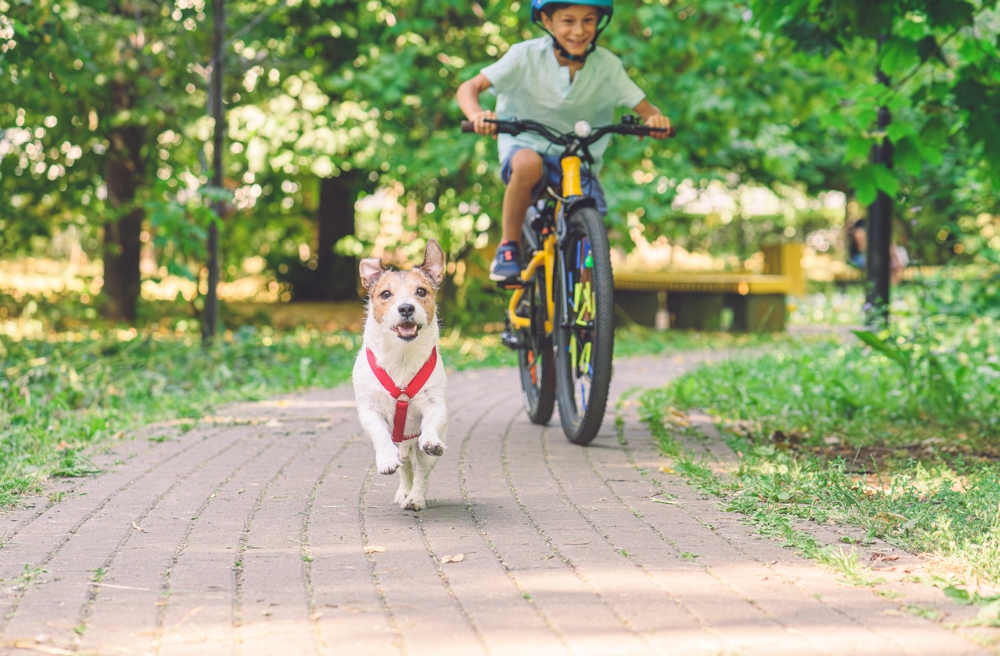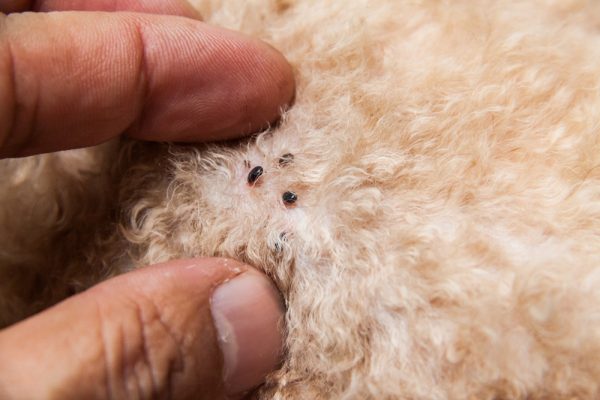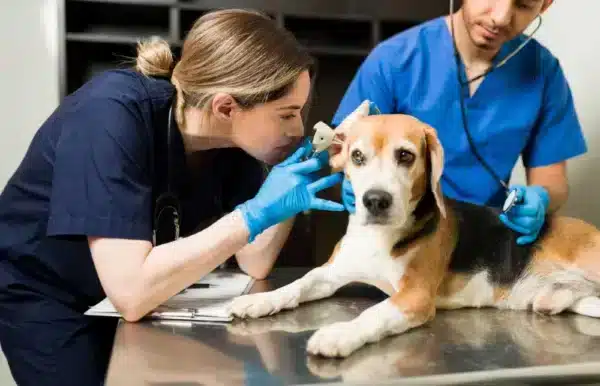If you notice your dog acting gingerly after playing, it could lead you to wonder if they are sore. After all, humans can easily get sore after working out or straining themselves. This leads to an obvious question. Can dogs get sore muscles from exercise or working out? Yes. Dogs can get sore muscles from exercise. The reasons dogs get sore after playing are the same reasons people get sore after strenuous activities. Here is everything you need to know about muscle soreness in dogs, including signs and whether your dog is sore or if they could be injured instead.

Muscle Soreness in Dogs
Dogs can definitely get sore muscles from exercise, though it can be more difficult to detect than in humans. Muscle soreness can occur after various types of exercise. Some people believe that dogs only get sore from high-intensity exercise, but that is not always the case. Low-intensity exercise can also cause muscle soreness in dogs.
High-intensity exercise includes sprinting and jumping. This can be achieved through playtime outside. Low-intensity exercise can include long walks or hikes. If a dog is not used to getting long periods of low-intensity exercise, it can also cause muscle soreness. Muscle soreness can be impacted by a dog’s fitness level and age. Dogs with poor fitness or physical health will be more likely to develop muscle soreness than fit dogs. Older dogs are also more likely to get sore after exercise. Low-intensity exercise can affect older dogs more than it affects younger dogs.

What Causes Muscle Soreness?
Muscle soreness is caused by tiny rips in the muscle structure that occur during exercise. Exercise strains the muscles, causing them to become damaged over time. These rips, called microtears, cause your dog’s muscles to regenerate after periods of exercise. This process is what builds muscle mass as the muscles typically regenerate stronger and thicker than they were previously. This is the same reason why humans get sore after exercise.
It might sound like a bad thing; however, this tearing and healing process is natural but causes low levels of pain. Some people used to believe that soreness was caused by a buildup of lactic acid in the muscles, but this is no longer believed to be the driving cause of muscle soreness in dogs (or humans).
Signs Your Dog Has Sore Muscles
If you suspect that your dog could be suffering from sore muscles, there are some signs to watch out for.
- Slight limping
- Stiffness of movement
- Reluctance to run or play
- Trouble getting up from lying down
If your dog is just sore, there is probably nothing to worry about. If you see signs of muscle soreness in your dog, you should decrease exercise and exertion until the signs abate. Continuing to push your dog when they are sore can lead to injury. This is especially true in older dogs and dogs with poor fitness.
If your dog shows signs of limping, poor mobility, or pain for more than a couple of days after exercise, you should consider taking them to the veterinarian to check for injuries. Sometimes, dogs are not just sore but are actually injured.

Sore Muscles vs. Injury
Muscle soreness does not technically count as an injury. However, dogs can become injured during exercise. Injuries are more severe than simple muscle soreness. They can occur in the muscles (pulls, strains, sprains, and tears). Dogs can also injure their joints and tendons during high-intensity exercise. Signs of injury in dogs can be similar to sore muscles but are often more pronounced and longer-lasting.
- Pronounced limp
- Pain aggression
- Yelping or screaming when a specific area is touched
- Unwillingness or inability to get up
- Lethargy
- Panting (from pain)
- Excessive licking of a specific area
Injuries are typically more painful than muscle soreness. Injuries can also hamper your dog’s ability to move and function normally. If you suspect your dog might be injured, you should take the dog to the veterinarian for an examination. Most minor injuries resolve with time, rest, and low-level pain killers.
If your dog is showing any of these signs, we recommend speaking with a vet.
If you need to speak with a vet but can't get to one, head over to PangoVet. It's our online service where you can talk to a vet online and get the advice you need for your dog — all at an affordable price!

Conclusion
Any dog can get sore muscles after exercise. The process that causes soreness in dogs is completely natural, and it is very similar to the process that causes muscle soreness in humans. If your dog is sore, you should reduce exercise and activity levels to give them time to recover. Failing to do so can lead to injury. Injuries are more severe than muscle soreness and can be more painful and last longer. In most cases, soreness and minor injury should resolve in a matter of days with increased rest, but a trip to the veterinarian might be necessary if the soreness doesn’t go away within a couple of days.
Featured Image Credit: alexei_tm, Shutterstock




















